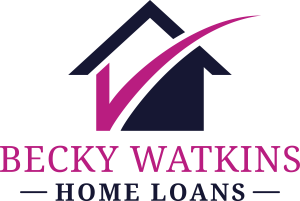How To Finance A Vacation Rental Property
Investing in a vacation rental property offers not just a potential revenue stream but also the opportunity to own a piece of paradise. Imagine having a property that not only generates income but also serves as your personal getaway whenever you desire. Vacation rental properties, often located in popular tourist destinations, provide travelers with a home away from home while offering investors a lucrative source of passive income. However, before diving into the world of vacation rental investments, there are several crucial considerations to keep in mind. From understanding the local market dynamics to grasping the financial commitments involved, aspiring investors must navigate various factors to ensure a successful venture. In this guide, we'll explore how to finance a vacation rental property, focusing on key strategies and insights tailored to potential investors eyeing the enchanting landscapes of New Mexico.
Is Owning a Rental Investment Property Right For You?
Owning a rental investment property, particularly a vacation rental, is a significant undertaking that requires careful consideration. On a daily basis, property owners must manage guest inquiries, bookings, and guest communications. Additionally, they may need to address maintenance issues, coordinate cleaning services between guests, and handle any unexpected emergencies that arise. Monthly tasks typically include monitoring rental income and expenses, paying bills associated with the property, and staying up-to-date with local regulations and tax obligations. Yearly responsibilities may include conducting property inspections, making necessary upgrades or renovations, and reassessing the property's rental strategy based on market trends.
Despite the demands, investing in vacation properties can offer several advantages. For one, it provides an opportunity for passive income generation, as rental properties can generate consistent cash flow through rental income. Additionally, vacation properties offer the potential for capital appreciation over time, particularly in desirable locations with strong tourism demand. Moreover, owning a vacation rental property allows investors to enjoy personal use of the property during off-peak rental periods, providing both financial and lifestyle benefits. Ultimately, whether owning a rental investment property is right for you depends on your financial goals, risk tolerance, and willingness to actively manage the property.
Things To Consider Before Financing a Real Estate Investment
Before delving into financing a vacation rental property, it's crucial to grasp the gravity of taking on a mortgage specific to this type of investment. While the prospect of owning a piece of paradise is enticing, it's essential to weigh the financial commitments and responsibilities that come with it. However, investing in a vacation property also offers the potential for significant long-term gains. Over time, as the property appreciates in value and the mortgage balance decreases, you can build equity, providing you with a valuable asset that can be leveraged for future financial endeavors.
Moreover, a vacation rental property can serve as more than just a source of income; it can also be a legacy to pass down to future generations. By carefully managing your investment and maintaining the property's appeal, you can create a lasting asset that provides enjoyment and financial security for your heirs.
When planning for a real estate investment that will serve as a vacation property, it's essential to consider various financial details. These include not only the initial purchase price and mortgage terms but also ongoing expenses such as property taxes, insurance, maintenance, and management fees. Additionally, factor in potential fluctuations in rental income, seasonal demand, and vacancy rates to ensure a comprehensive financial plan that accounts for all contingencies. By thoroughly evaluating these considerations, you can make informed decisions and set yourself up for success in financing your vacation rental property investment.
Time Commitments of Owning a Rental Property
Owning a rental property, especially a vacation rental, entails various time commitments that extend beyond the initial purchase. Maintenance is a critical aspect, requiring regular inspections, repairs, and upkeep to ensure the property remains in optimal condition. Additionally, between guest stays, property owners must allocate time for thorough cleaning and sanitization to maintain a positive guest experience and meet cleanliness standards.
Moreover, preparing the rental space for guests may involve decorating and renovating to enhance its appeal and functionality. This could include updating furnishings, adding amenities, or making aesthetic improvements to attract potential renters. These tasks require careful planning and execution before the property can be listed for rent.
Once the rental property is operational, ongoing management becomes essential. This includes managing bookings, processing payments, and addressing guest inquiries or concerns promptly. Providing excellent customer service is vital for maintaining positive guest reviews and attracting repeat visitors, necessitating consistent communication and availability to address guest needs effectively.
Overall, owning a vacation rental property demands a significant time commitment for maintenance, cleaning, preparation, and ongoing management. Property owners must be prepared to dedicate time and resources to ensure the property's success and guest satisfaction.
Expenses Related to Owning a Rental Property
Owning a rental property can be a lucrative investment, but it's crucial to understand the various expenses associated with it. From initial purchase costs to ongoing maintenance and management fees, being aware of these expenses is vital for successful property ownership.
Purchase Cost
The first expense to consider is the purchase cost. When investing in rental properties, you'll typically need a larger down payment compared to owner-occupied properties. Lenders usually require a down payment of 20% or more for rental properties. For instance, if you're buying a $250,000 house, you should secure at least $50,000 as a down payment. Additionally, you'll have monthly mortgage payments to factor in once you've secured the initial amount. It's essential to know these figures beforehand to incorporate them into your financial planning.
Costs of Owning a Rental Property
The expenses of owning a rental property include repairs, maintenance, taxes, insurance, and other associated costs. These expenses typically amount to about 50% of the monthly rent. It's crucial to break down each cost and understand how they're calculated. For example, if you're renting out a $250,000 property for $2,500 a month, you can expect various expenses related to repairs, maintenance, and upkeep.
Repair and Maintenance Costs
Repairs and maintenance are inevitable expenses for rental property owners. While they may not occur every month, it's essential to prepare for unforeseen expenses. Seasoned property owners follow rules of thumb to account for repairs and maintenance, such as the $1 per square foot rule or the 1% rule based on the property's value. These rules help estimate annual maintenance costs and ensure adequate funds are set aside.
Vacancy Allowance Cost
Vacancy rates, while seen as a lack of income, should not be overlooked as an expense. Calculating the cost of vacancy involves determining your vacancy rate and multiplying it by your expected annual revenue. This helps account for potential income loss due to vacant periods. Checking comparable vacancy rates in the area can provide insight into potential rental income and help in financial planning.
Property Insurance Cost
Property insurance is a fixed expense that can be easily calculated. On average, property insurance for rental properties is about 25% more expensive than homeowner's insurance. It's essential to obtain quotes from multiple insurance companies to find the best deal and understand the coverage and costs involved.
Property Taxes
Property taxes vary depending on the assessed value of the property and the jurisdiction's tax rate. Calculating property taxes involves multiplying the assessed value by the property tax rate. It's crucial to research local tax rates before investing in a rental property and budget accordingly.
Property Management Cost
Even if you choose not to hire a property manager, it's essential to consider property management costs. These costs include management fees and tenant placement fees, typically ranging from 6-8% of the monthly rent. Factoring in property management costs helps estimate the overall expenses of owning a rental property.
Other Expenses
In addition to the above expenses, there are other miscellaneous costs to consider, such as travel, bookkeeping, and unforeseen expenses. Budgeting 2-4% for these expenses is a good practice to be prepared for any unexpected costs that may arise.
Understanding and budgeting for these expenses is crucial for successful rental property ownership. By accurately estimating expenses, investors can make informed decisions and ensure the profitability of their rental property investments.
Maintenance to Consider When Owning a Rental Property
Owning a rental property, whether for long-term tenants or vacationers, entails significant responsibility. Proper maintenance is crucial to preserving the value of your asset and ensuring a positive experience for guests. Below, we outline the key aspects of maintaining a rental property, categorized into routine tasks and long-term strategies.
Routine Maintenance:
Weekly Tasks:
Indoor Inspection: Regularly inspect light switches, light bulbs, keys/access points, toilets, faucets, showers, tubs, sinks, appliances, garbage disposal, and technology.
Outdoor Inspection: Examine the yard, trees, outdoor tech, locks, gates, pool, and hot tub.
Monthly Tasks:
Indoor Maintenance: Dusting, inspecting water filters, checking for dampness, evaluating grout and caulk, testing smoke alarms and CO detectors, inspecting security systems, and examining furniture and linens.
Outdoor Maintenance: Lawn maintenance, inspecting carports and fencing, testing safety railings, running the irrigation system, and cleaning pool and hot tub filters.
Bi-Annual Tasks:
Indoor Maintenance: Testing outlets, inspecting furniture, replacing HVAC filters, inspecting windows and screens, checking for cracks and water damage, cleaning hood vents, and dusting hard-to-reach areas.
Outdoor Maintenance: Inspecting decking and cladding, cleaning eaves and trim, pruning trees, and removing debris from the yard.
Seasonal Maintenance:
Indoor Tasks: Replacing air filters, cleaning dryer vents, testing power outlets, inspecting safety devices, and touching up paint and sealants.
Outdoor Tasks: Ensuring garage door operation, applying fertilizer, draining hot tubs, inspecting roofs and foundations, checking weather stripping, and cleaning exteriors.
Yearly Maintenance:
Indoor Maintenance: Flushing water heaters, bleeding radiators, inspecting insulation, cleaning sinks and drains, and deep cleaning grout and caulk.
Outdoor Maintenance: Pruning trees, planting new shrubs or flowers, inspecting outdoor AC units, restocking emergency supplies, inspecting exterior caulking, and covering gaps underneath decks.
Long-Term Strategies:
Regular Inspections: Conduct routine quarterly inspections and occasional drive-by inspections to identify potential issues early.
Clear Policies: Establish clear policies for reporting damages and hold guests accountable for repairs through damage waivers or security deposits.
DIY vs. Professional Help: Determine which tasks you can handle yourself and which require professional assistance, especially for electrical, plumbing, and pest control issues.
Automated Communication: Utilize vacation rental software for efficient communication with guests and staff to streamline maintenance tasks.
Checklist Creation: Develop a comprehensive maintenance checklist covering all areas of the property, from the kitchen and living spaces to the garden and exterior.
Maintaining a rental property is a year-round commitment that requires diligence and attention to detail. By implementing a proactive maintenance strategy and investing in regular inspections, clear policies, and efficient communication, you can ensure the longevity of your property, minimize repair costs, and provide a positive experience for your guests. Remember, regular maintenance not only preserves your property's value but also enhances guest satisfaction and ultimately boosts your rental income.
Pros of Owning a Vacation Rental Property
Tax Benefits
Owning a vacation rental property qualifies as a business venture, offering various tax advantages. You can deduct numerous rental expenses, including mortgage interest, housekeeping, restocking, and property management costs, potentially resulting in substantial savings on your taxes.
Rental Income
One of the primary advantages of owning a vacation rental property is the rental income it generates. The demand for short-term rentals is steadily increasing, driven by travelers seeking alternatives to traditional hotel accommodations. With the right marketing strategy, you can secure a steady stream of rental income, particularly during peak vacation seasons.
Dual Usage
Unlike traditional investment properties, owning a vacation rental property allows you to enjoy it for personal use as well. You can use your vacation home whenever it's convenient for you while still generating income from rentals during periods of vacancy. This dual usage offers both financial benefits and personal enjoyment.
Real Estate Appreciation
Over time, vacation rental properties have the potential to appreciate in value, especially if located in high-demand areas. By making strategic renovations and staying updated on market trends, you can maximize your property's appreciation, enhancing its long-term investment value.
Easy Marketing Opportunities
Platforms like Airbnb, VRBO, and HomeAway have simplified the process of marketing vacation rental properties. With extensive reach and targeted advertising options, attracting guests has never been easier. Partnering with a property management company can further streamline marketing efforts, ensuring a consistent influx of guests.
Expansion of Knowledge
Owning a vacation rental property provides valuable opportunities for learning and personal growth. From real estate investment strategies to guest relations and communication skills, managing a vacation rental property can broaden your knowledge base and open doors to new career opportunities.
Cons of Owning a Vacation Rental Property
Unexpected Expenses
Maintenance and repair costs can arise unexpectedly, impacting your cash flow.
While insurance may cover major damages, smaller repairs can still add up over time.
Setting aside funds annually for maintenance can help mitigate these costs.
Time Consumption
Regular upkeep and preparation for guests can be time-consuming.
Managing reservations, cleaning, and addressing guest needs require consistent attention.
Hiring a property management company can alleviate some of this burden.
Higher Down Payment
Vacation rental properties typically require larger down payments, around 30-30%.
Higher credit scores are often necessary due to increased debt and risk.
Discuss financing options with your bank to understand specific requirements.
Investment Risks
Financial risk includes potential market downturns affecting property values.
Natural disasters, especially in waterfront areas, pose significant risks.
Special insurance policies may be required for protection against flooding and hurricane damage.
Limited Location
Owning a vacation property ties you to a specific location, limiting travel opportunities.
Unused vacation homes can become burdensome if not frequented regularly.
Consider the long-term commitment and potential monotony of repeated visits to the same destination.
How to Find a Good Rental Property To Invest In
Investing in rental properties requires thorough research and careful consideration. When looking for a good rental property to invest in, several factors should be taken into account. First, evaluate the neighborhood, considering demographics, vacancy rates, and proximity to amenities. Next, research property taxes and school quality, as these factors can influence tenant demand and property value. Additionally, assess crime rates and job market trends to gauge the overall desirability of the area. Future development plans and natural disaster risks should also be considered. Finally, ensure the property can generate sufficient rental income to cover expenses. With proper due diligence, investing in rental properties can be a rewarding venture.
Conduct Market Analysis
When conducting a market analysis for potential rental properties, it's crucial to thoroughly review the neighborhood. Look for areas with easily accessible locations by flight or car, as this can attract more tenants, especially tourists. Additionally, consider the foot traffic for entertainment and food establishments, as busy areas tend to have higher demand for rental properties. Furthermore, assess the real estate equity in the neighborhood by examining recent sales prices and trends. Understanding these factors will help you determine your borrowing capacity and the type of loan programs you qualify for. Conducting a comprehensive market analysis ensures that you choose a location with high rental potential and long-term profitability.
Understand the Cycles of Vacation Rentals
Understanding the cycles of vacation rentals is essential for maximizing profitability. Begin by researching the peak seasons in your target area, as this will dictate when demand—and consequently rental rates—are highest. Look into historical data and local tourism trends to identify these cycles accurately. Once you have a clear understanding of the vacation rental cycles, plan your property's availability and pricing accordingly. During peak seasons, capitalize on higher rates, while during off-peak times, consider offering discounts or adjusting your marketing strategies to attract more guests. By aligning your rental strategy with the fluctuations in demand, you can optimize your rental income and ensure consistent occupancy throughout the year.
Calculate Expected Income and Expenses
When calculating expected income and expenses for a vacation rental property, it's crucial to consider various factors. Start by estimating potential rental income based on market rates and occupancy projections. Factor in expenses such as mortgage payments, property taxes, insurance, maintenance costs, and management fees. Don't forget to account for vacancy rates and unexpected expenses. To ensure accuracy, consult with a mortgage expert who can help you crunch the numbers and provide insights into financing options. By conducting a thorough analysis of income and expenses, you can determine the property's cash flow potential and make informed decisions about your investment strategy.
Financing Your Rental Property
When financing your rental property, there are several important steps and considerations to keep in mind. Start by gathering necessary documents such as proof of income, tax returns, and asset statements. Research different mortgage options and lenders to find the best rates and terms for your situation. Consider factors like down payment requirements, interest rates, and loan terms. Pre-approval is essential before starting your property search, as it gives you a clear understanding of your budget and strengthens your position as a buyer. Work closely with your lender throughout the process, providing any additional documentation or information they request. Finally, be prepared for the closing process, which involves signing various legal documents and paying closing costs. By understanding the financing process and working with a knowledgeable lender, you can secure the funding needed to purchase your vacation rental property.
Understand Your Own Financial Situation
Before embarking on financing a vacation rental property, it's crucial to assess your personal financial situation thoroughly.
Start by reviewing your credit score, as this will heavily influence the terms and rates you qualify for. Aim for a score of at least 620 to secure favorable financing options.
Next, evaluate your debt-to-income ratio, ensuring that you have manageable levels of existing debt relative to your income. Lenders typically prefer a ratio below 43%. Additionally, gather documentation of your income, including pay stubs, tax returns, and any additional sources of revenue. Calculate your savings and consider how much you can comfortably allocate toward a down payment and closing costs.
Consult with a mortgage expert to understand how DSCR loans can impact your financing plan.
Finally, assess your long-term financial goals and risk tolerance to determine if investing in a rental property aligns with your overall strategy. By understanding your financial position and capabilities upfront, you can approach the financing process confidently and make informed decisions.
Plan for High and Low Seasons
When financing your rental property, it's essential to plan for both low and high seasons in vacation rentals. Consider discussing this with a mortgage expert who can help you strategize. Prepare by estimating your income during peak seasons and accounting for potential dips during off-peak times. A mortgage expert can advise on creating a financial buffer to cover expenses during slower periods, ensuring you can meet mortgage payments consistently. Additionally, discuss options for adjustable-rate mortgages (ARMs) or fixed-rate mortgages based on your rental income projections and risk tolerance. An expert can help tailor your financing plan to accommodate seasonal fluctuations, providing stability and flexibility in managing your vacation rental property. Consult with a mortgage expert to strategize your financing plan, considering adjustable-rate mortgages and financial buffers for off-peak periods.
Loan Programs Available For Vacation Rental Properties
When exploring loan programs for vacation rental properties, you'll find various options offering flexibility in financing. Working with a mortgage broker expands your choices. Here are some common loan types:
1. Debt-Service Coverage Ratio (DSCR) Loan: This loan evaluates the property's ability to cover debt payments based on rental income. It's suitable for investors with multiple properties.
2. Home Equity Line of Credit (HELOC): This revolving credit line uses your property's equity as collateral. It offers flexibility but requires discipline in managing repayments.
3. Cash-Out Refinance: This involves refinancing your mortgage for a higher amount than you owe and receiving the difference in cash. It's a way to access equity for property improvements or other investments.
4. Conventional Loans: These are traditional mortgage loans with fixed or adjustable interest rates, suited for buyers with good credit and stable income.
A mortgage broker can guide you through these options, helping you choose the best fit for your investment strategy and financial situation.
Talk to a Mortgage Expert
Getting started on your vacation home just takes one step - talking to a licensed real estate agent and mortgage broker, Becky Watkins. Give us a call and we’ll help you strategize your mortgage investment plan.
FAQs about Vacation Rental Properties
How do I make my vacation rental pay for itself?
To make your vacation rental pay for itself, focus on maximizing occupancy rates, setting competitive rental rates, and minimizing expenses through efficient management and maintenance practices.
Do you have to put 20% down on a second house?
While putting 20% down on a second house is a common requirement, there are financing options available that may allow for a lower down payment. Consult with a mortgage expert to explore your options based on your financial situation.
Is it hard to finance a vacation home?
Financing a vacation home can be straightforward with the right guidance. While it may require additional documentation and considerations compared to a primary residence, working with a knowledgeable lender can streamline the process.
How much income should I expect to earn from a vacation property?
The income you can expect from a vacation property varies depending on factors such as location, rental demand, property size, and amenities. Conduct thorough market research and consult with rental experts to estimate potential earnings for your specific property.
Talk To A Mortgage Expert About Your Investment Property











